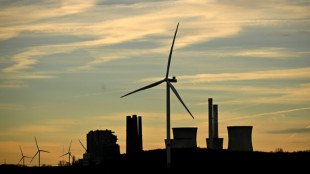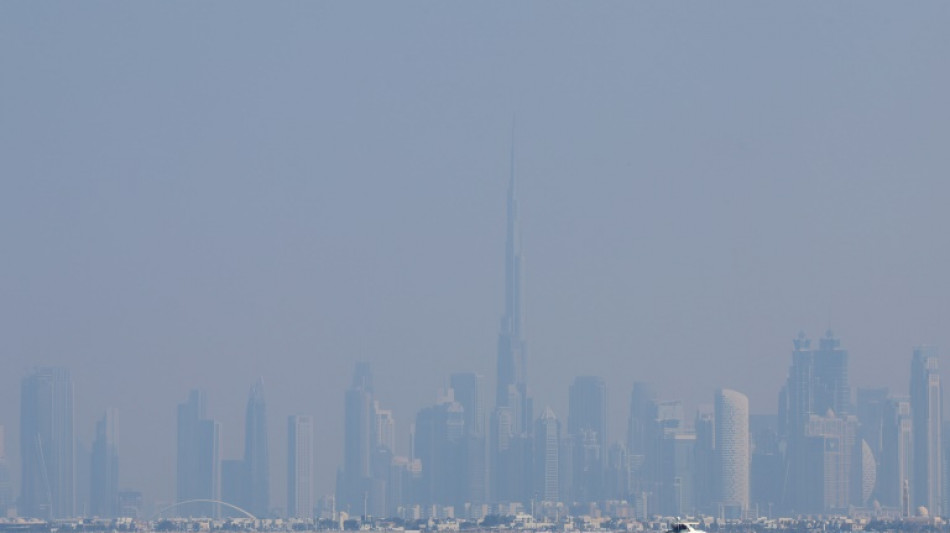
-
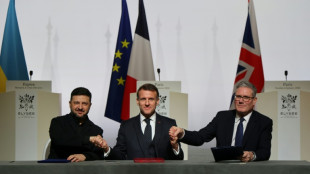 Talks on Ukraine guarantees to continue after Paris 'progress'
Talks on Ukraine guarantees to continue after Paris 'progress'
-
AI, outdated visuals fuel misinformation after Maduro capture
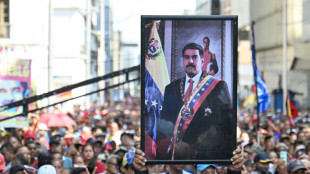
-
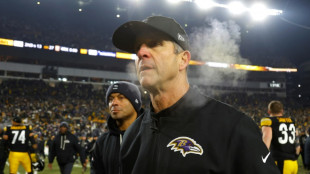 John Harbaugh fired by Ravens after 18 seasons
John Harbaugh fired by Ravens after 18 seasons
-
Jays and Astros hope to match Dodgers' Japan success

-
 Under-fire Frank claims support of Tottenham hierarchy
Under-fire Frank claims support of Tottenham hierarchy
-
Fletcher asked for Ferguson's advice before taking Man Utd interim role
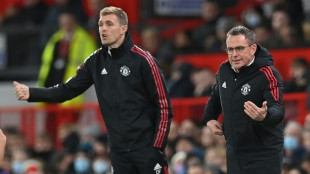
-
 Juventus bounce back in Serie A as Roma, Como in Champions League hunt
Juventus bounce back in Serie A as Roma, Como in Champions League hunt
-
New Venezuela leader says 'no foreign power' running country
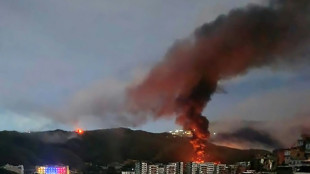
-
 NBA Bulls sign Japanese guard Kawamura
NBA Bulls sign Japanese guard Kawamura
-
Rubio was called a sell-out, then he won on Venezuela
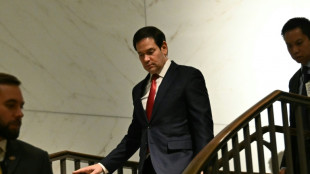
-
 Relief mixed with fear as Venezuelans cross into Colombia
Relief mixed with fear as Venezuelans cross into Colombia
-
Nine dead in clashes between Syria govt, Kurdish forces in Aleppo

-
 Forest boost survival bid to leave West Ham in turmoil
Forest boost survival bid to leave West Ham in turmoil
-
Boulbina stunner takes Algeria through, Diallo sparkles for I. Coast

-
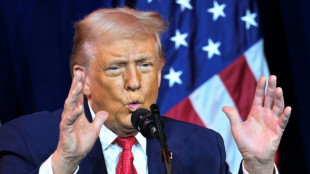 Trump considering military options to acquire Greenland
Trump considering military options to acquire Greenland
-
Diallo stars as Ivory Coast set up Egypt showdown in AFCON

-
 Teen killed in anti-conscription protest in Jerusalem
Teen killed in anti-conscription protest in Jerusalem
-
Diallo stars as Ivory Coast set up Egyptsh owdown in AFCON

-
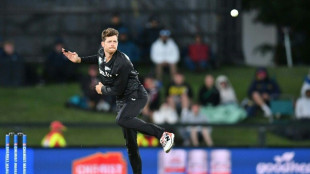 Black Caps go spin heavy for T20 World Cup campaign
Black Caps go spin heavy for T20 World Cup campaign
-
Brazil oil drilling near Amazon halted over 'fluid leak'

-
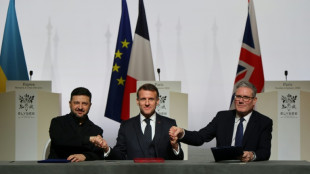 Western allies agree Ukraine guarantees after Paris 'progress'
Western allies agree Ukraine guarantees after Paris 'progress'
-
DR Congo's human statue becomes AFCON's most famous fan

-
 Boulbina extra-time stunner takes Algeria through to AFCON quarter-finals
Boulbina extra-time stunner takes Algeria through to AFCON quarter-finals
-
Doncic, Giannis lead NBA All-Star voting

-
 NASCAR commissioner Phelps steps down
NASCAR commissioner Phelps steps down
-
Domen Prevc secures Four Hills ski jump title to emulate brother

-
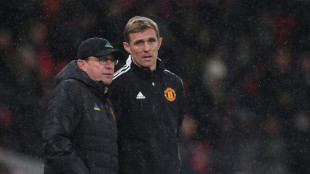 Fletcher says Man Utd coaching job was not in 'wildest dreams'
Fletcher says Man Utd coaching job was not in 'wildest dreams'
-
US forces killed 55 Venezuelan, Cuban military personnel in Maduro raid: tolls
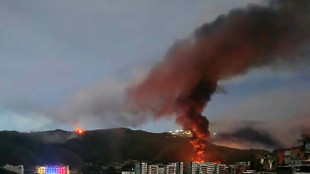
-
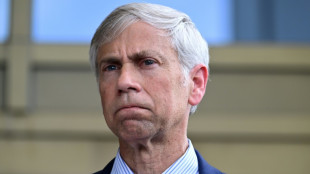 Maduro lawyer previously defended WikiLeaks' Julian Assange
Maduro lawyer previously defended WikiLeaks' Julian Assange
-
O'Neill not sure he has 'energy' for long Celtic stay
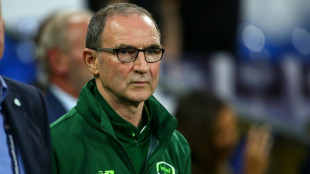
-
 Como sweep past Pisa to go fourth in Serie A
Como sweep past Pisa to go fourth in Serie A
-
Iran security forces use tear gas in Tehran bazaar as toll rises
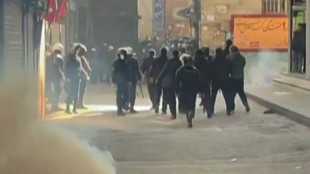
-
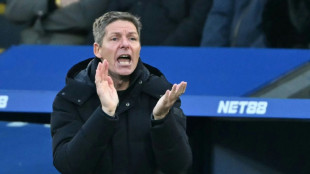 Man Utd speculation 'wasted time', says Palace boss Glasner
Man Utd speculation 'wasted time', says Palace boss Glasner
-
Somalia calls Israeli FM visit to Somaliland an 'incursion'
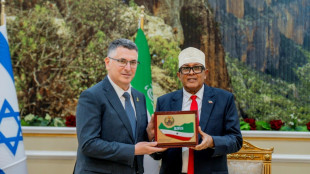
-
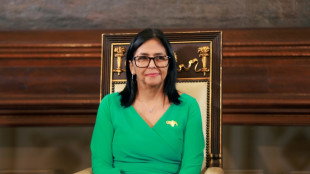 New Venezuelan leader walks tightrope with US, Maduro loyalists
New Venezuelan leader walks tightrope with US, Maduro loyalists
-
US Capitol riot anniversary exposes a country still divided

-
 Six dead in weather accidents as cold snap grips Europe
Six dead in weather accidents as cold snap grips Europe
-
Repeating Super Cup success will give Barca 'energy': Flick
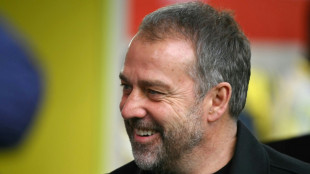
-
 Dias, Gvardiol sidelined as Man City face defensive crisis
Dias, Gvardiol sidelined as Man City face defensive crisis
-
Newcastle's Howe rules himself out of Man Utd job

-
 Five dead in weather accidents as cold snap grips Europe
Five dead in weather accidents as cold snap grips Europe
-
US would lead Ukraine ceasefire monitoring, back multinational force: draft statement
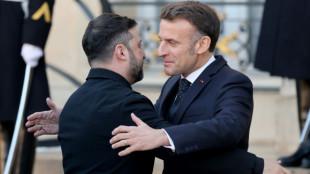
-
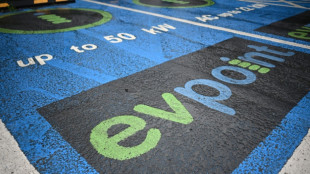 UK electric car sales hit record high in 2025: industry
UK electric car sales hit record high in 2025: industry
-
Hungarian filmmaker Bela Tarr dies aged 70

-
 Canadian Gee joins Lidl-Trek, resolves dispute with ex-team
Canadian Gee joins Lidl-Trek, resolves dispute with ex-team
-
'Demon' drags hosts Australia into United Cup quarters
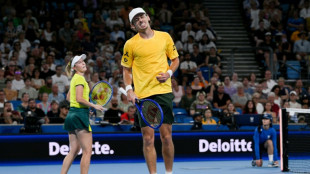
-
 EV sales rebound in Germany as Chinese brands make inroads
EV sales rebound in Germany as Chinese brands make inroads
-
Swiss officials admit inspections failure at inferno bar
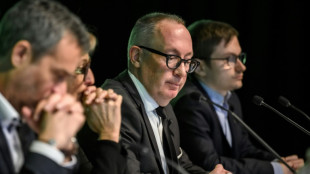
-
 Taylor's endorsement prompts Swift sell-out for Sancerre wine
Taylor's endorsement prompts Swift sell-out for Sancerre wine
-
Chelsea appoint inexperienced Rosenior as new boss


Climate deal won't have immediate impact on Gulf oil
An agreement to "transition away" from fossil fuels may be a landmark moment but don't expect quick changes among the major producers of the Gulf, where the deal was hammered out.
After the UN's COP28 climate talks in Dubai, Saudi Energy Minister Prince Abdulaziz bin Salman immediately played down the text, insisting it would have "no impact on exports" from the country that ships more oil than any other.
The deal "doesn't impose anything" on oil-producing countries and allows them to cut emissions "according to their means and their interests", the minister said.
It is not an "agreement on the immediate or progressive elimination of fossil fuels, but a process of transition", he told Saudi TV channel Al Arabiya Business on Wednesday.
The prince had earlier voiced staunch opposition to including a phasing-down of fossil fuels in the Dubai text, which ultimately omitted any mention of "phase-down" or "phase-out".
Striking a deal that appeases nearly 200 countries -- even though some critics were not in the room when it was passed -- followed some deft deal-making by the COP28 presidency.
The United Arab Emirates' official WAM news agency called it a "win-win for all", describing COP28 as a "watershed moment in the fight against climate change".
For French Energy Minister Agnes Pannier-Runacher, it was also an exercise in realpolitik.
The deal's phrasing was "a very elegant way by the different negotiators to find a way out for all parties... nobody loses face and it's the climate and the planet that win".
- 'Producing oil for decades' -
Saudi Arabia and the UAE are investing in renewable energy and have pledged to decarbonise their domestic economies -- not including the fossil fuels they sell abroad.
They are also, like other oil producers including the United States, building up their capacities to cater for an expected rise in demand.
However, the realities of a post-oil future and the economic opportunities of the energy transition are not lost on the Gulf monarchies, analysts say.
"They'll keep producing and exporting oil for decades," Ben Cahill, senior fellow at the Center for Strategic and International Studies' Energy Security and Climate Change Program, told AFP.
"But the UAE is also investing to create a more diversified energy system and sees itself as a global player in financing the energy transition."
Andreas Krieg, a political risk analyst specialising in the Middle East, said it was a "significant and trend-setting statement" as it was agreed in the UAE under a COP28 president, Sultan Al Jaber, who is CEO of oil giant ADNOC.
"I think this is a shift in narrative for the hydrocarbon rentier states of the Gulf, who understand that the intent of phasing out fossil fuels will be reality-checked by a fairly stable demand for oil and certainly gas in the coming decades outside of the developed world," he said.
- 'Million-dollar question' -
How Saudi Arabia was brought on board is the "million-dollar question" said Cinzia Bianco, a visiting follow at the European Council on Foreign Relations.
"The UAE benefit from the production of fossil fuels, but they have already embraced that transition, way before the other producers," she said.
"It was easier for them than it was for the Saudis, who have still not embraced it to the same extent, to be the shepherd of a compromise position."
Krieg said the Saudi opposition "has to be seen in the light of growing intra-Gulf competition and was an attempt to undermine the prospect of COP28 becoming successful.
"However, considering that the global consensus was so strong and overwhelming, Saudi did not want to be seen as the odd-one out."
For the UAE, COP28 was not just about environmental benefits, said Kristian Ulrichsen, fellow for the Middle East at the Baker Institute in Houston, Texas.
"The UAE invested a lot of political and diplomatic capital in COP28 and wanted precisely this kind of landmark statement that would associate the UAE with setting the global agenda and forging a new consensus for the road ahead," he said.
J.Oliveira--AMWN

